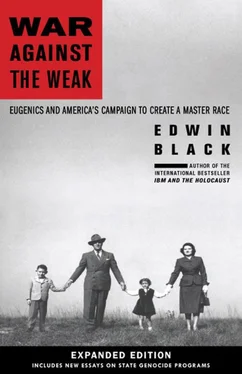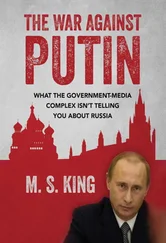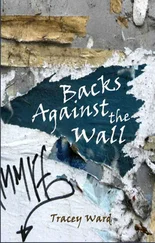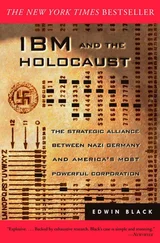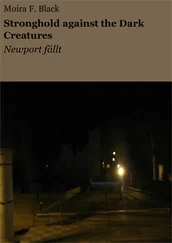Edwin Black - War Against the Weak
Здесь есть возможность читать онлайн «Edwin Black - War Against the Weak» весь текст электронной книги совершенно бесплатно (целиком полную версию без сокращений). В некоторых случаях можно слушать аудио, скачать через торрент в формате fb2 и присутствует краткое содержание. Город: Washington, DC, Год выпуска: 2012, ISBN: 2012, Издательство: Dialog Press, Жанр: История, на английском языке. Описание произведения, (предисловие) а так же отзывы посетителей доступны на портале библиотеки ЛибКат.
- Название:War Against the Weak
- Автор:
- Издательство:Dialog Press
- Жанр:
- Год:2012
- Город:Washington, DC
- ISBN:1-56858-258-7
- Рейтинг книги:3 / 5. Голосов: 2
-
Избранное:Добавить в избранное
- Отзывы:
-
Ваша оценка:
- 60
- 1
- 2
- 3
- 4
- 5
War Against the Weak: краткое содержание, описание и аннотация
Предлагаем к чтению аннотацию, описание, краткое содержание или предисловие (зависит от того, что написал сам автор книги «War Against the Weak»). Если вы не нашли необходимую информацию о книге — напишите в комментариях, мы постараемся отыскать её.
War Against the Weak — читать онлайн бесплатно полную книгу (весь текст) целиком
Ниже представлен текст книги, разбитый по страницам. Система сохранения места последней прочитанной страницы, позволяет с удобством читать онлайн бесплатно книгу «War Against the Weak», без необходимости каждый раз заново искать на чём Вы остановились. Поставьте закладку, и сможете в любой момент перейти на страницу, на которой закончили чтение.
Интервал:
Закладка:
The last reference to euthanasia in the archived files of the Human Betterment League is probably found in Folder 29, marked “Euthanasia.” The folder contains several letters, written in 1975 and 1976, between one of the state’s leading law firms and Bowman Gray School of Medicine. Eugenicist and hosiery magnate James Gordon Hanes, a founder of the Human Betterment League, was openly copied on all the correspondence. A working committee was exploring new and better definitions of when to apply the concept of mercy killing to medical patients, starting with the vegetative. Discussions about euthanasia commonly focused first on the most obvious medical candidates at the rim of the slippery slope.
In 2002, the Winston-Salem Journal published a riveting newspaper series exposing the deep veins of eugenic sterilization undertaken during the twentieth century. The mainly dormant sterilization law was finally repealed in 2003. Governor Michael Easley issued a formal apology for the state’s campaign. The apology led to a call for compensation for “the victims.” The case for compensation was especially energized by two determined and tireless North Carolina citizens, State Representative Larry Womble and Winston-Salem Journal reporter John Railey. The compensation call attracted worldwide media and political attention throughout 2011. At press time for this expanded edition—April 2012—the state legislature is roiling over whether they will pay compensation of as much as $50,000 to each of a few thousand people victimized by the blade of North Carolina’s sterilization statute. Their vote is a chapter that will be written only after this book is printed.
But the question is: Can you really write a check for genocide? If so, who should write it? Who should receive it? Certainly, those who survived the surgeries should receive reparation as a down payment on justice. But the larger question is adjudicating the role of the Carnegie Institution, the Rockefeller Foundation, the Pioneer Fund, a cohort of prominent universities, medical and legal societies, and many other esteemed organizations that energetically helped North Carolina execute a campaign of genocide against its own citizens. They weren’t following orders—they were giving the orders. More compelling questions exist: What will be done in North Carolina and other states to ensure that society will be sufficiently educated to never again allow such a crime to occur? This calls for the type of education now addressing slavery and the Holocaust. But the universities remain silent, perhaps hoping no one will notice their historic roles.
When will those with compensation on their mind understand who the real victims are? Is it the men and women who survived the knife, the people we can still hear and see? Or are the most important and most numerous victims the innocent, never-born generations that cannot be seen or heard—that is, not easily. Listen carefully; you might hear them faintly or sense their translucent presence. They too might be asking one question: Why?
ILLUSTRATIONS











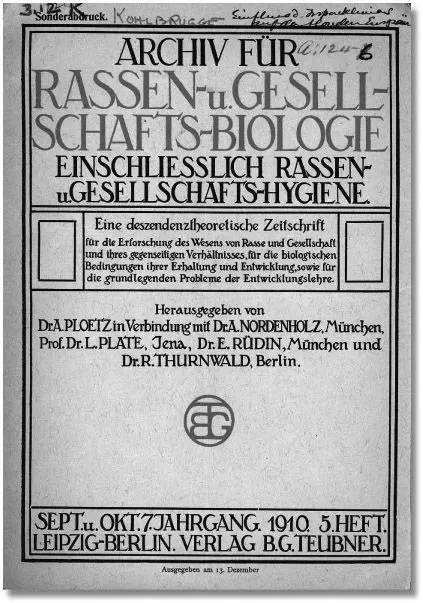
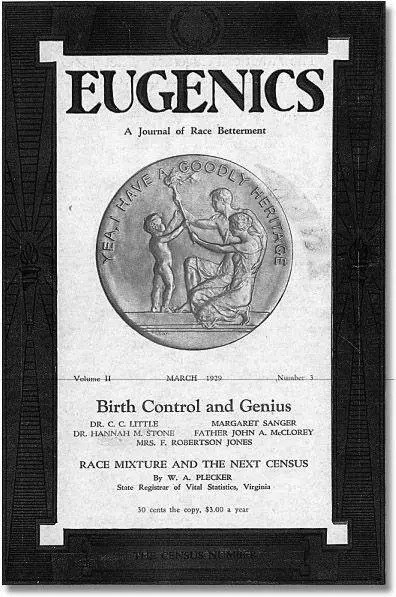
Eugenics, March 1929 edition, featuring articles by Virginia racist Walter Plecker and birth control advocate Margaret Sanger. VERMONT STATE PUBLIC RECORDS DIVISION
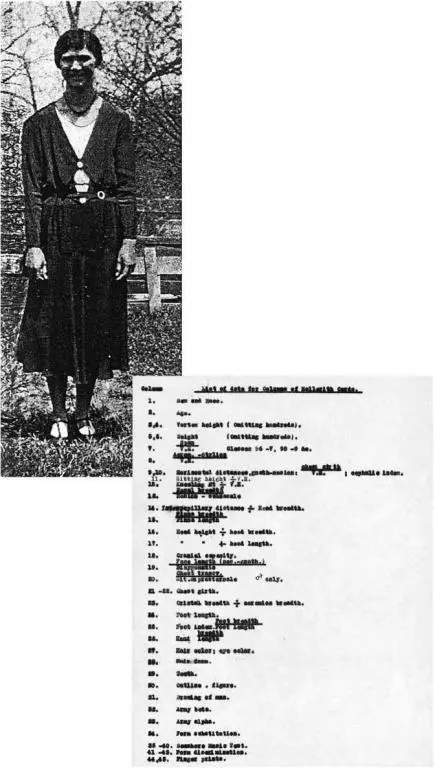
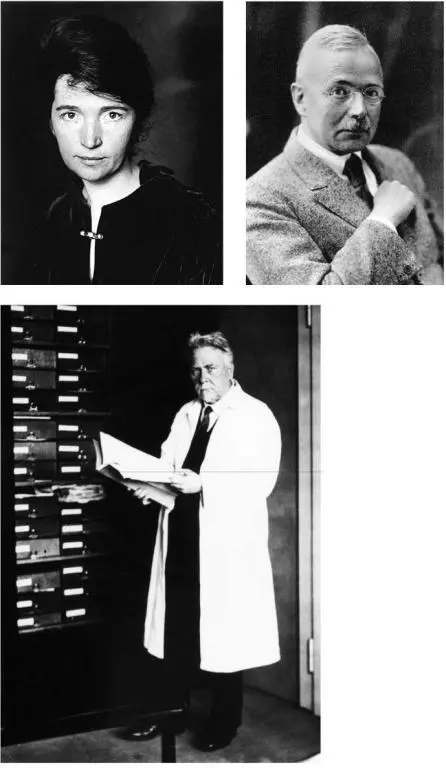
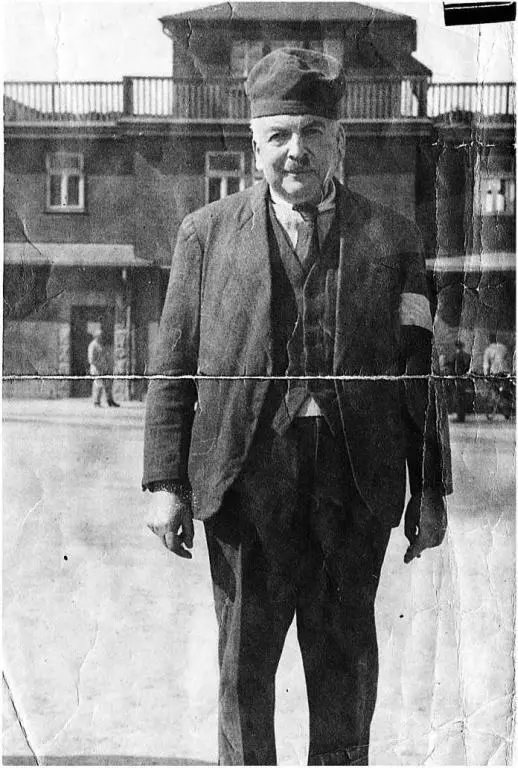
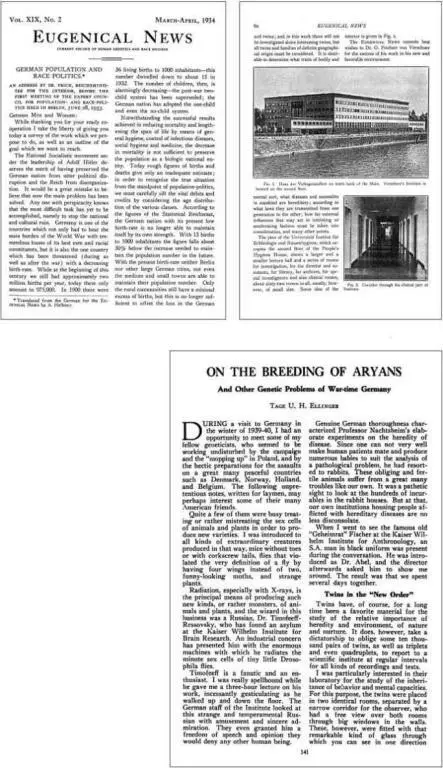
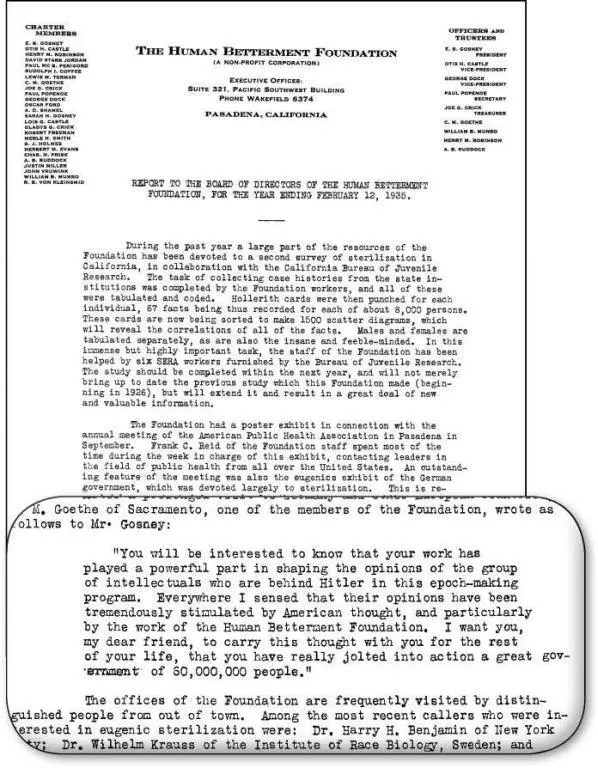
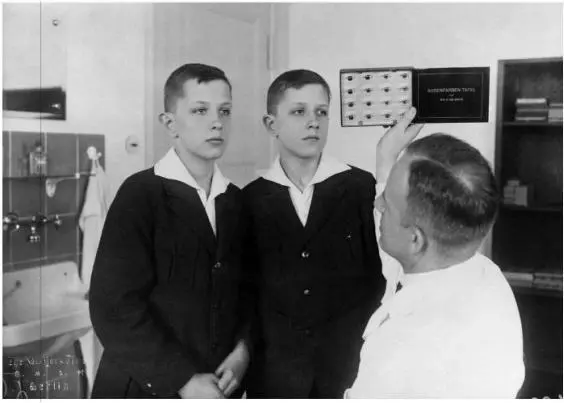
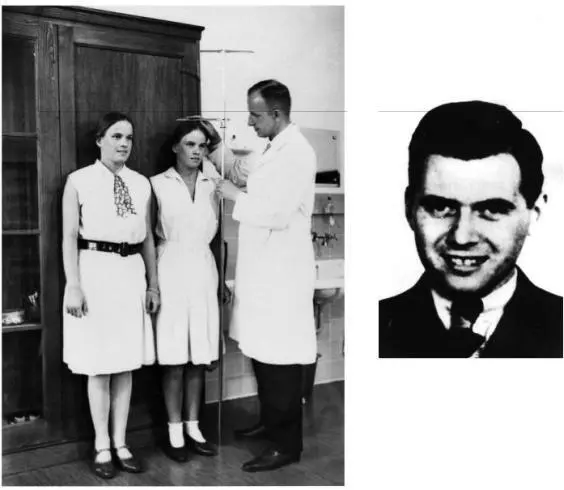
Praise for Edwin Black’s War Against the Weak
Интервал:
Закладка:
Похожие книги на «War Against the Weak»
Представляем Вашему вниманию похожие книги на «War Against the Weak» списком для выбора. Мы отобрали схожую по названию и смыслу литературу в надежде предоставить читателям больше вариантов отыскать новые, интересные, ещё непрочитанные произведения.
Обсуждение, отзывы о книге «War Against the Weak» и просто собственные мнения читателей. Оставьте ваши комментарии, напишите, что Вы думаете о произведении, его смысле или главных героях. Укажите что конкретно понравилось, а что нет, и почему Вы так считаете.
